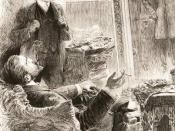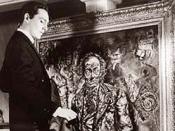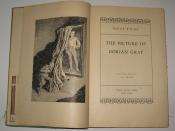Oscar Wilde's outlook on tradition can be best understood in the context of his strong ties to the Decadent poets, a movement in which Romantic attraction to whatever produced the sharpest sensation became a cult of perversity and degeneration. Their emphasis was on the importance of art for its own sake. Art must be independent of moral and social concerns, they believed, and must concentrate on style above all else. The inspiration for Decadent art was to be found in aestheticism, the cultivation of an ideal art, a new form of beauty - leading to the extreme pole of Dandyism. Decadent poets were mostly interested in escaping Victorian moral conventions. They did not avoid shocking or scandalous themes: they took interest in all expressions of human emotion, the traditionally acceptable as well as the perverse and immoral.
In contrast to the literary tradition of realism, Wilde held relativist views about moral issues.
His writings manifest a hint of rebellion against the whole morality of the bourgeois age, and they show a preference for moral ambivalence to the certainty of moral conventions. Wilde's epigrams also expose the so-called natural moral values of Victorian society as ideological constructions and empty mannerisms. His work brings about a transformation of values: he changes negative terms like "sin" and "insincerity" into positive notions for individual development.
For his part, T.S. Eliot's believed that all poets must conform to tradition to produce new expressions of old artistic ideas. His essay "Tradition and the individual" advocates, at least implicitly, the notion of "canon" for the works that stand the test of time. To Eliot, literature must have a continuing relevance for each generation; its significance must conform to the tradition of the dead poets and artists. This tradition, Eliot suggests, does not mean a blind conformity...


